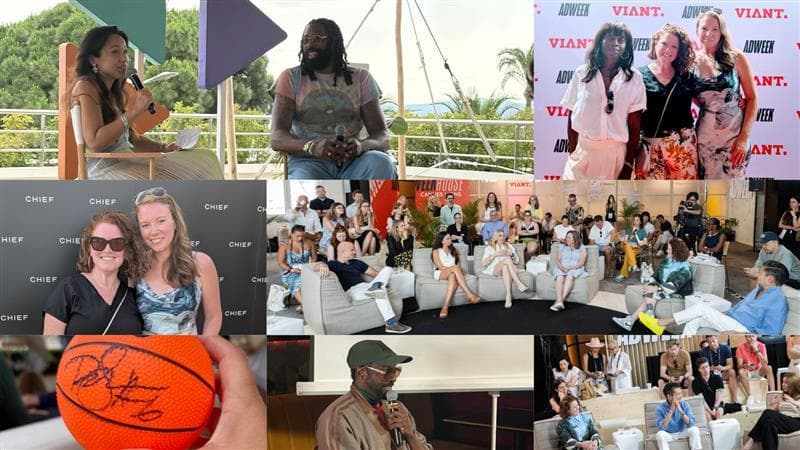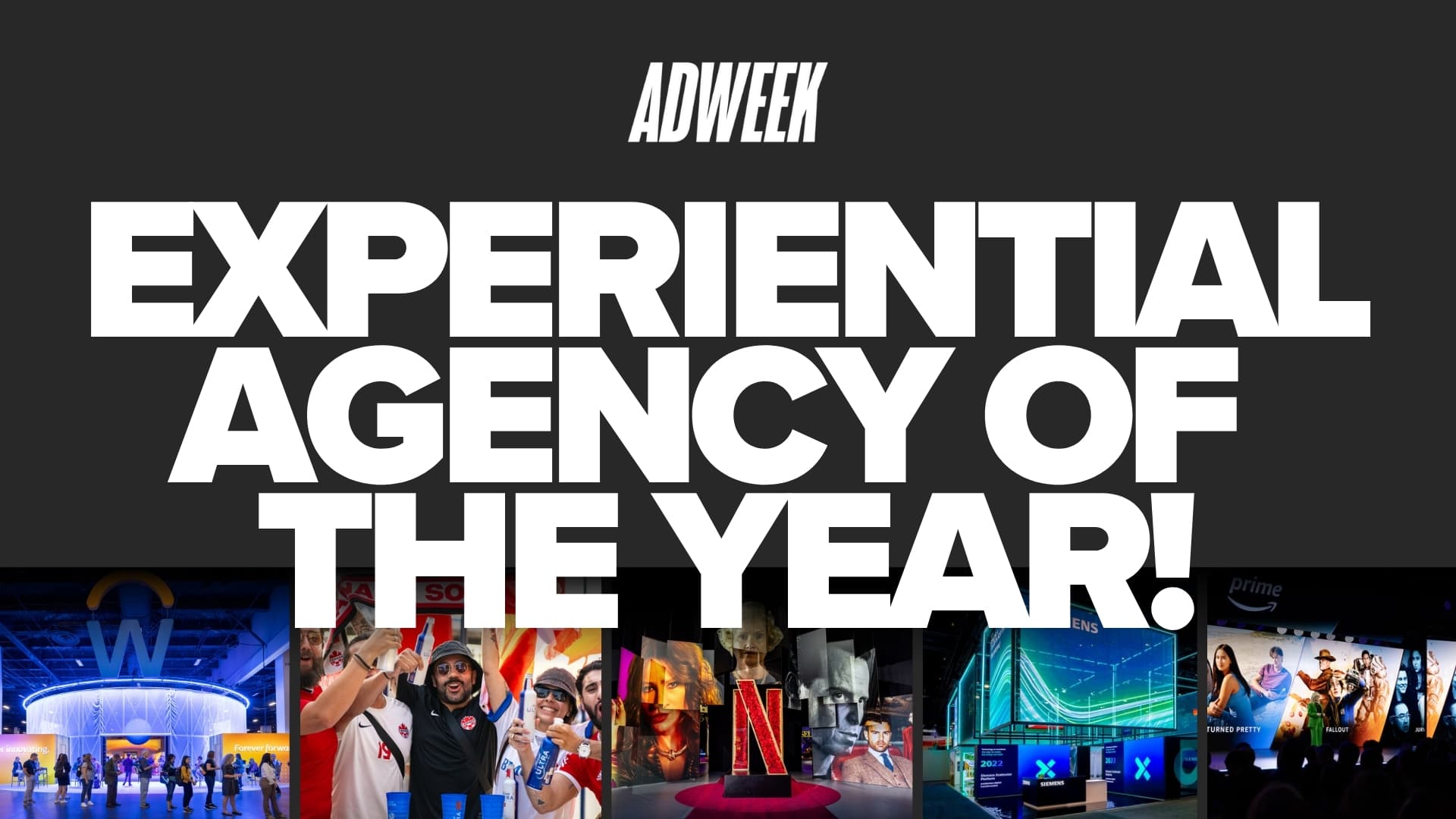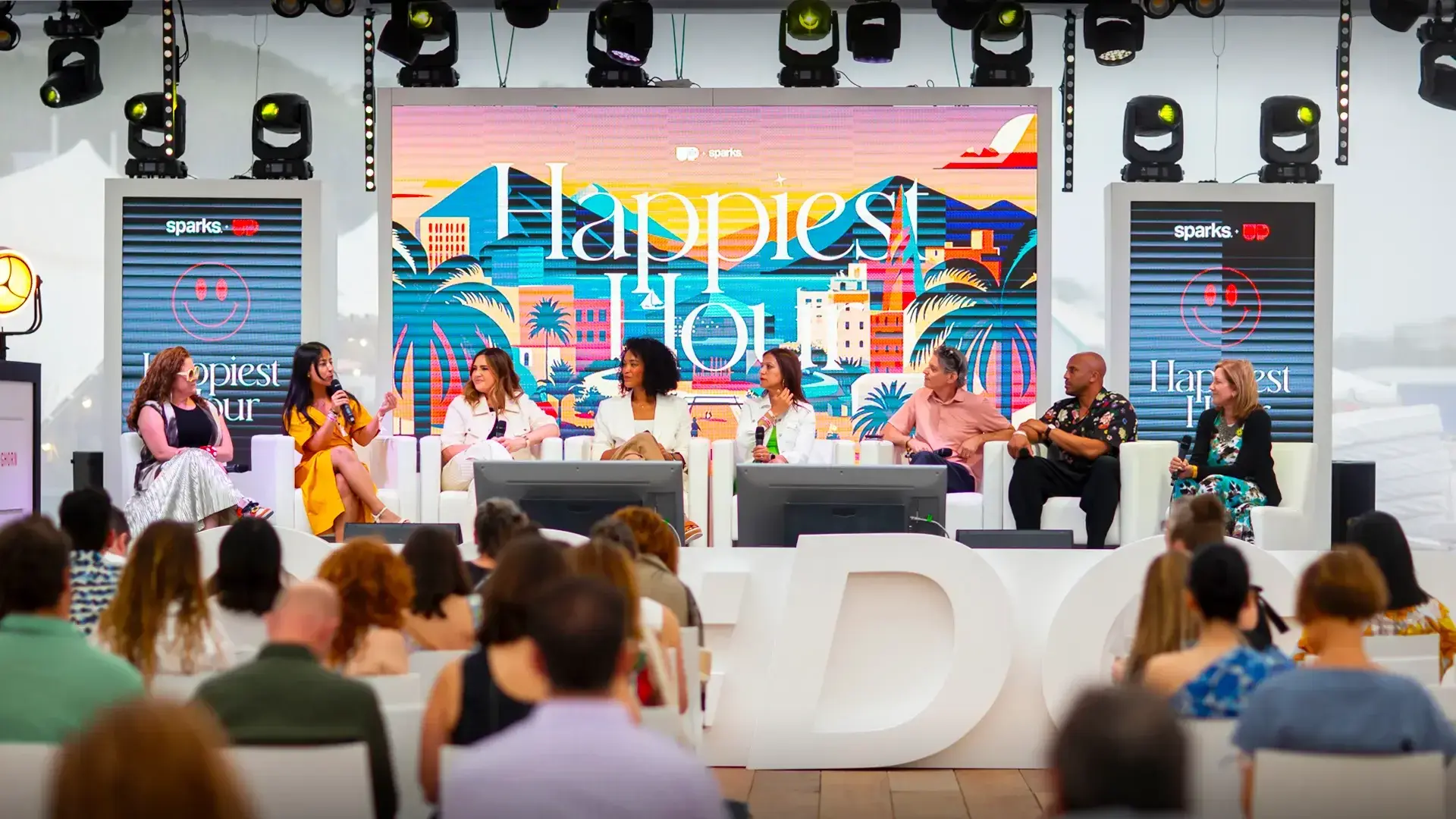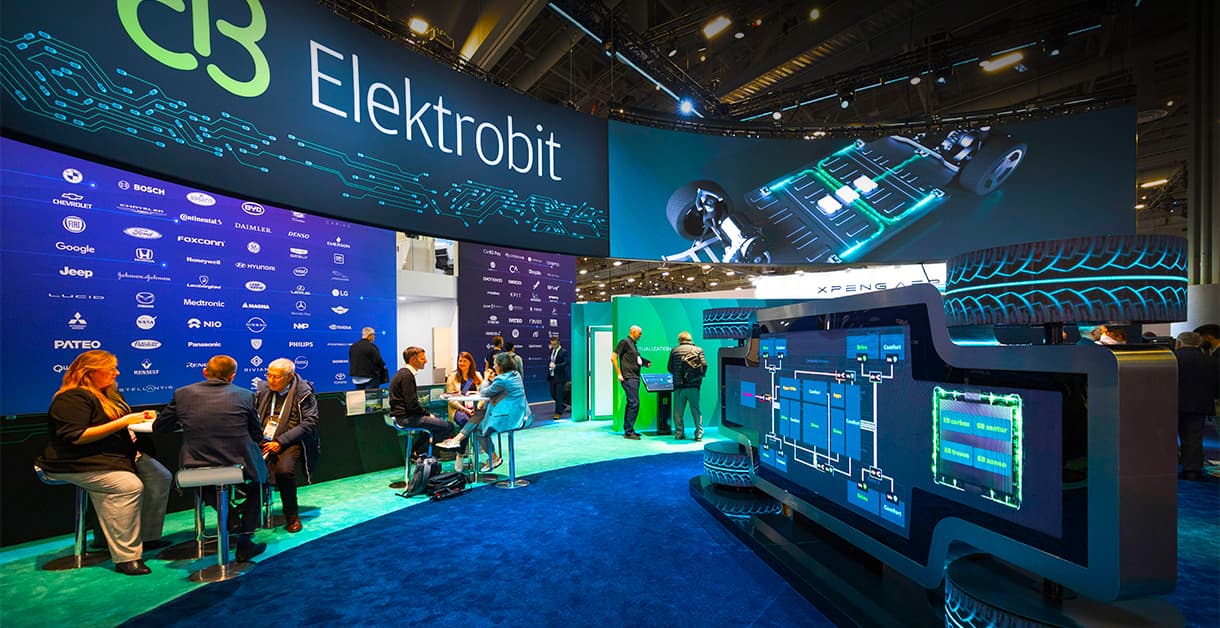Cannes Lions Report 2025: Culture Is the New KPI


Sparks participated in the 2025 Cannes Lions Festival of Creativity for the third year, speaking on multiple panels with Adweek, She Runs It, and others. In between, we visited clients, viewed incredible activations, and took in talks from other industry professionals around the state of advertising, marketing, creativity, and more- as well as the trends that drive our industry.
Whether it was about creators, sports, technology or purpose-driven storytelling, Cannes Lions 2025 made one thing clear: culture drives connection. And connection is the currency of experiential marketing. For those of us who build brand worlds in real life, this year’s festival offered more than inspiration—it offered a strategic roadmap. Here’s what stood out, and why it matters for those shaping the future of in-person brand experiences.
AI Doesn’t Oppose Human Connection - It Drives It
While AI remains a dominant theme in the lives of marketers, at Cannes there was a noticeable shift in tone. Apple’s Tor Myhren declared, “AI will not save advertising,” reinforcing the irreplaceable role of human creativity. But the takeaway wasn’t anti-tech—it was pro-human.
Many marketers called for the removal of a doomsday attitude and consideration of AI as a faster path to excellence. Certain platforms may bring a quick solve for turning out content - but may also mean a flood of mediocre product - reminding us that creativity is what makes stories shine. CEO of Accenture Song Ndidi Oteh emphasized how brands such as Mondelez are leveraging AI not just for efficiency but to scale personalization and creativity across markets with custom content. She added a promising “Over the next two years, we’re going to see that transform significantly. And we’re going to see some of the best creative work yet.”
Why it matters for experiential: AI isn’t replacing creativity—it’s accelerating it. For experiential marketers, this means faster prototyping, real-time personalization, and the ability to extend physical activations into digital ecosystems. It’s a tool to help us move at the speed of culture—without sacrificing craft.
AI will not save advertising.
The Creator Economy Grows Up
Cannes was here to illustrate what most of us already know: creators are becoming the voices of brands, not just the faces of product. They’re no longer guests - they are leading panels, co-creating campaigns, and shaping brand narratives. Meta featured Amaury Guichon (Mr. Chocolate) on stage, and Mark Oblow (skateboarder and artist) in their immersive skate park. TikTok flew in food influencer @chefabbys. Social media stars from Amelia Dimoldenberg to Jake Shane made appearances, and Forbes unveiled its newest “Top Creators List” at a party where more than a few attendees appeared to be trailed by their own photographers. Brands are partnering with creators not just for reach, but for cultural relevance. Ad Age’s Gillian Follett said it best: creators are now strategic partners, not just media buys.
Why it matters for experiential: Brands must treat creators like creative directors, integrating them into the experience design process. Their influence can extend the life and reach of physical activations across digital platforms. The creator economy is now a $10bn industry, according to Adweek - and it’s time for marketers to tap in and get on board.
Sports and the New Storytelling
Sports remained one of the hottest categories at Cannes - and for marketers it’s the top destination, the safest haven, and the hottest landscape for brand-building. Yet as brands look at the deep need for consumers to align with purpose and values without compromising fandom, sports marketing is growing into a space where values, community, and storytelling converge. Athletes now connect with fans and communities directly, representing stories and purpose above and beyond their team identity. No place captured this better than Stagwell’s Sport Beach, now a Cannes institution. From Leslie Jones and Glenn Cole’s Olympic storytelling session to Dwyane Wade and Draymond Green’s conversation on athlete branding, the message was clear: athletes are creators, and sports are culture.
The other white space? The meteoric rise of women’s sports - boasting triple-digit viewership numbers in the past 12 months and continuing to demonstrate exponential growth - paving the way for an even bigger sponsorship playing field. From Ilona Maher to Disney ad chief Rita Ferro, there was no shortage of advocates touting the possibilities of marketing in this massive vertical. Always Alpha founders pointed out that female athletes make over 70% of their income off the field - providing even more opportunities to consider partnerships and creator experiences.
Why it matters for experiential: Sports activations are no longer just sponsorships—they’re platforms for emotional storytelling. They offer a way to connect with audiences through shared values, not just shared interests.

In-Person Matters More Than Ever
Ads make an impression, but meaningful brand experience creates a memory. Whether it’s tentpole moments, sports partnerships, immersive events, or retail pop-ups, brand experiences that tap into identity and cultural relevance don’t just make an impression—they drive authentic connection. And that connection fuels preference, loyalty, and long-term brand value.
Robin Lickliter, Chief Experience Officer of Sparks, spoke at Adweek House about why brand experience matters more than ever, saying “Because it’s truly a human connection…when a brand is a real life experience, it has the opportunity to evoke emotion, create joy, trigger all senses; things that a consumer can’t normally see, feel, or do when you don’t have that face-to-face opportunity. That interaction makes a lasting impression with the opportunity for long term brand loyalty.”
Why it matters for experiential: Every in-person moment should be shareable, scalable, and measurable. Entire communities are created through a point in time that meets with culture. In-person brand experiences are not the side dish of a campaign: they are the drivers of ecosystems and marketing strategies. With the experiential industry set to hit $1.2tn by 2033, it’s time for marketers to make experiential a part of their core business infrastructure rather than a single tactic.
Cannes Lions 2025 wasn’t just a showcase of creativity—it was a call to action. The takeaway was clear: the true measure of a campaign’s success is cultural relevance and emotional impact. Experiences are what turn stories into shared meaning, creating community and meaningful moments. And it’s through collective effort that we as marketers can build those moments together.


